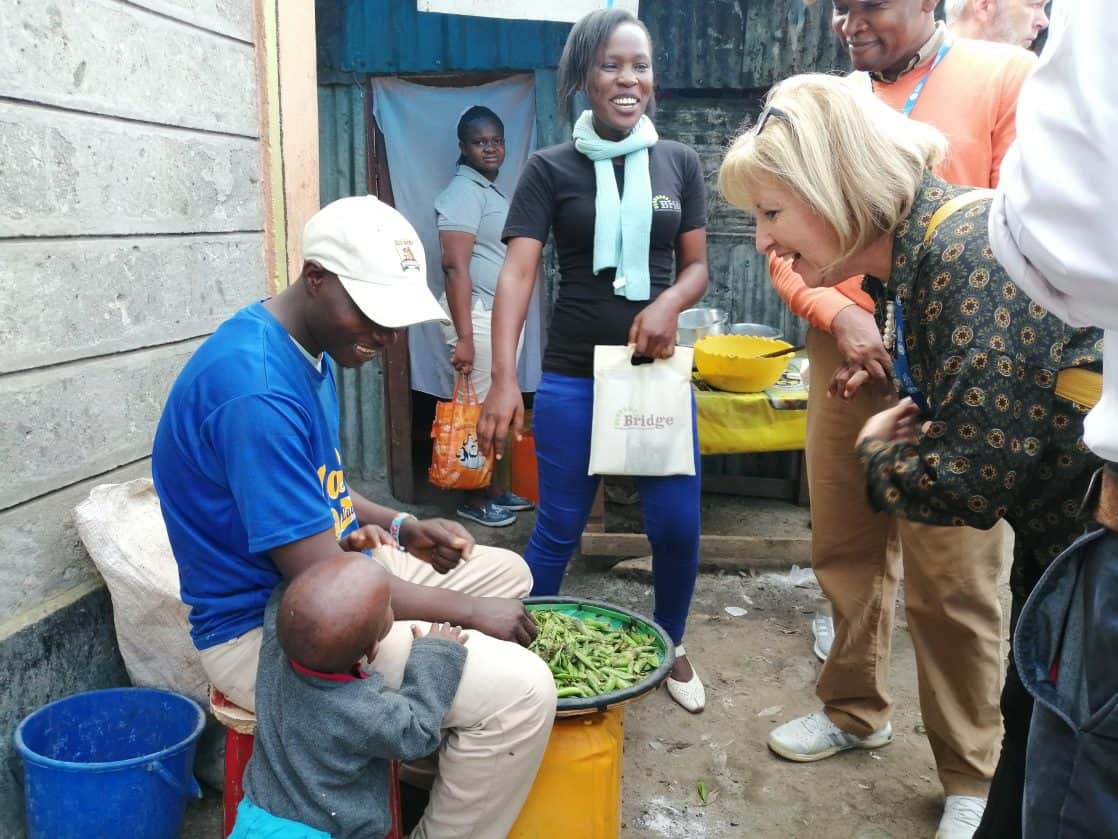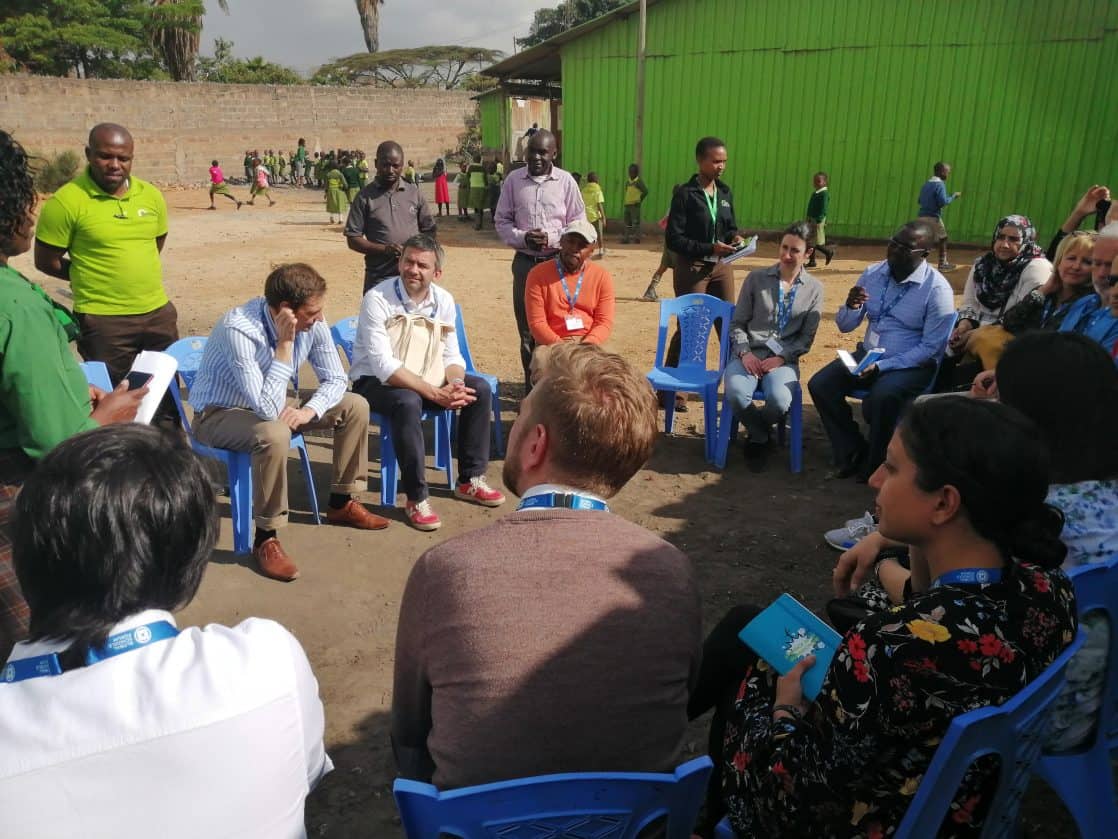Collaborating as a sector
The Global Schools Forum (GSF) was inaugurated a few years ago and is a membership body which aims to provide a collective voice to non-state actors involved in the delivery of SDG4. Its membership ranges from newly formed organisations running a handful of schools to those that have been going for longer, supporting hundreds of schools. Every year there is an annual meeting which enables operators to come together sharing learnings and experiences that will both strengthen the work of individual actors and the sector overall.
In 2019, the GSF hosted its fourth annual meeting in Nairobi, Kenya where Bridge started its journey; opening our first school in Mukuru kwa Reuben in 2009. Ten years later it was exciting to see a growing number of non state actors convene in the capital to talk about the role they can play in helping to tackle the learning crisis. John Soleanicov of UBS Optimus reflected: “There is so much potential in this room—the role of the private sector can be significant. There is much more in this room that unites us rather than divides us.” With multilateral bodies such a USAID, DFID and the World Bank all shifting significantly towards the adoption of a mixed ecosystem model to improve education outcomes; fostering opportunities to collaborate and share learning is important, particularly for a relatively new sector.

Pictured right: The academic director of Nova Pioneer meets members of the local community en route to Bridge, Sinai; part of a delegation to visit the academy from Global Schools Forum.
Debate and conversation over the three days ranged from equity and inclusion to empowering local actors; from IDinsight talking about data collection systems to the PAL Network highlighting that, “if we want to get children to learn, first we have to get them to think.” Bridge’s Shannon May spoke about school leadership technology and how it has been developed to improve and support school management. From employing storytelling to strengthening partnerships and using data to improve community impact the GSF community provided eachother with plenty of food for thought.
Of course, underpinning the delivery and improvement of educational outcomes is the role of teachers. Ben Piper from Research Triangle Institute delved into his research on the best approaches to teacher training. He emphasised that, “what really matters is when they leave the training classroom and whether they thrive.” It’s therefore important that teachers leave their training feeling comfortable with what they’ve learnt otherwise, the likelihood of them trying the new approach in the classroom is nil.” He reminded the audience that, “adults learn differently from children, so giving pointers for improvement following lesson observations is the best way to facilitate change”; a training approach that we at Bridge support.
Government partnerships were also brought under the spotlight. The CEO of the Education Partnership Group argued that: “Understanding motivations, will and institutional stability are the core of successful partnerships with government.” Sustainability, system-wide impact and scale was a keynote session and rightly so; the scale of the learning crisis demands it. As the Pal Network’s Sara Ruto said: “We are not in competition with Government. We need to work with them to ensure innovation and new ideas spread.” Programmes like EdoBEST which are delivering system wide public sector transformation are a great example but sadly these are few and far between.
It can be easy to get lost in abstract discussion and statistics at conferences; so visits to member schools’ at the outset created an important backdrop for subsequent discussions. Visits to Dignitas, Kidogo, Nova Pioneer, Scholé and Bridge, Sinai set the tone, enabling those at GSF to see how schools on the ground run in some of Nairobi’s most impoverished communities. Children like Brian Ombogo who went to Bridge, Sinai and who scored 368 marks on his Kenyan Certificate of Primary Education (KCPE) last year—giving him opportunities that he hadn’t dreamt of.

Above: Delegates from Global Schools Forum listen to Stella Murungi, academy manager of Bridge, Sinai.
Perhaps the most inspiring moment amidst the conversations, presentations and discussions was when an all female drama troupe from Makini Schools took to the stage. One performer proudly declared: “I am inspired by Michelle Obama because I want to be the first President of Kenya,” and why not?! GSF is made up of those that are committed to enabling all children to have access to quality education; committed to all children having the opportunity to fulfil their potential, and; all children to dream of being able to reach the highest office in the land knowing it is possible despite the circumstances in to which they were born.
We’re looking forward to Global Schools Forum, 2020 already!
